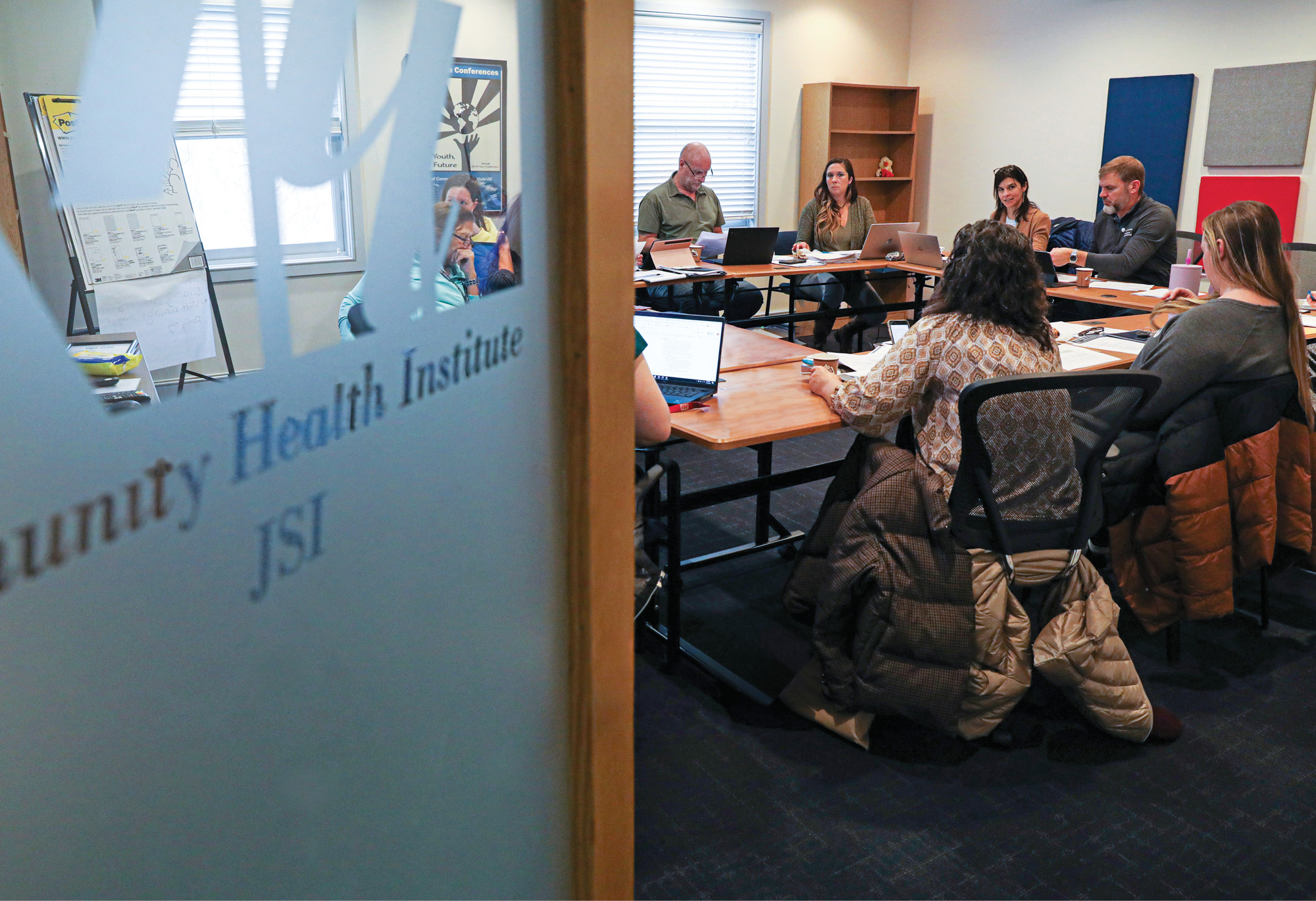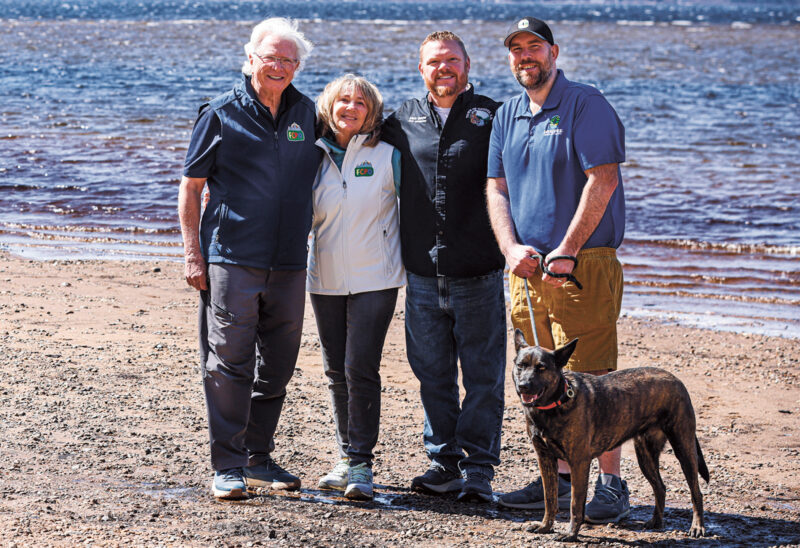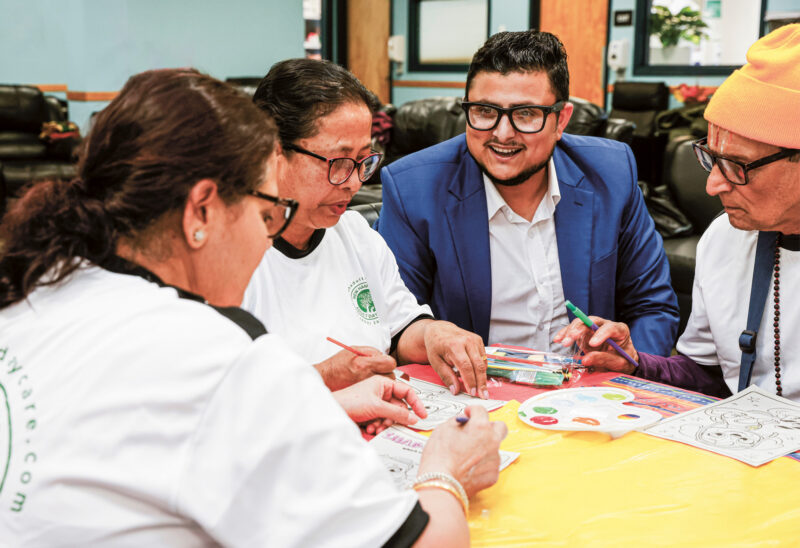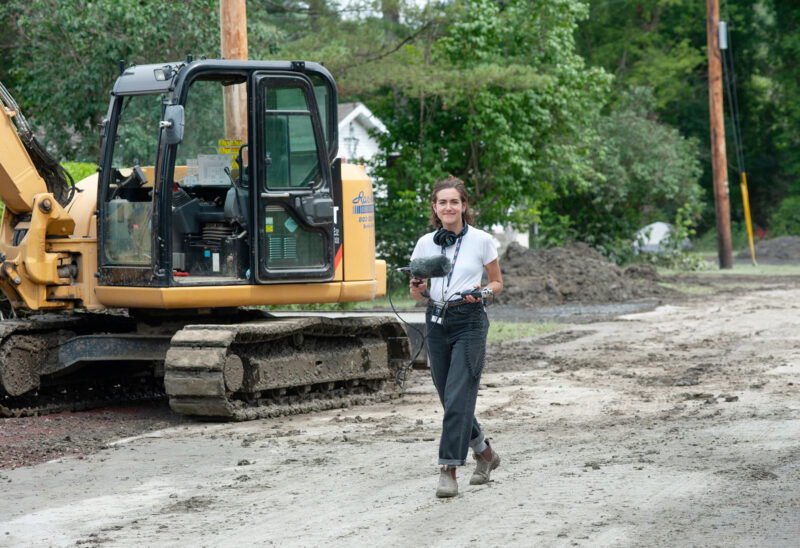Susan Stearns’ son was diagnosed with an emotional disorder when he was five years old. At 14, he was diagnosed with a serious mental illness.
She made it her mission, her vocation, to get him all the help and care he needed. She was educated, accustomed to navigating systems, and English was her first language.
And still, she crashed over and over into a system that was inadequate, fractured, and often entirely unnavigable.
Now, thanks to years of work, advocacy and collaboration by many partners, that system works differently.
The “Children’s System of Care” that is in place in New Hampshire today means that the state has a Bureau of Children’s Behavioral Health, an Office of Social & Emotional Wellness, that New Hampshire includes children in its 10-year mental-health plan, that children and families get care that is more holistic, less siloed — and families are supported. The system is not perfect — but it is vastly improved.
“Today, my son would be eligible for very different programs, services and wrap-around care … and I would be eligible for peer support that would help me develop the skills to best advocate and care for him,” said Stearns, who is now the executive director of NAMI Hampshire.
The current system was germinated more than a decade ago during a joint initiative of the Charitable Foundation and Endowment for Health, which brought together providers, state agencies, families and other community partners to launch a “collective impact” focus on children’s behavioral health.
“I would venture to say we didn’t have a system before. We have built a system,” said Katja Fox, director of the state’s Division for Behavioral Health.
Foundation Director of Behavioral Health Traci Fowler was at those early tables and remains a member of the New Hampshire Children’s System of Care Advisory Council.
“It is critical that we, as a community, tend to the behavioral health needs of young people,” Fowler said. “Doing so is one of the most important ways we can promote healthy outcomes — including preventing substance use disorders.”

Susan Stearns of NAMI New Hampshire. (Photo by Cheryl Senter.)
An evolution
The Charitable Foundation has invested significantly in prevention, treatment and recovery from substance use disorders for nearly three decades. As the science and understanding of the field have evolved, the work has adapted to recognize that attending to people’s mental health — including children’s mental health — is among the most critical components of prevention. Consequently, the Foundation’s work and funding have also evolved and broadened.
The Charitable Foundation’s work in this area began after Oliver Hubbard of Walpole, NH — a chicken farmer and businessman — donated a total of $43.5 million to the Foundation to change the curve on addiction in the state. Since then, the Foundation has granted out more than $50 million, funding which has also acted to draw in hundreds of millions of state and federal dollars to address this issue.
Systems and infrastructure were built and supported by those funds — including the state’s system of regional public health networks and the Center for Excellence on Addiction, co-founded by the Foundation and the state’s Department of Health and Human Services. The funds were the catalyst behind the founding and sustaining of the nonprofit advocacy powerhouse New Futures, which contributed to the passage of dozens of laws, from Medicaid expansion — which gave tens of thousands of Granite Staters access to health insurance that included coverage for addiction treatment — to the creation (and full funding) of the state’s Alcohol Fund and a more recent law that officially created the Bureau for Children’s Behavioral Health.
Fowler joined the Charitable Foundation staff in 2018 and moved into her role as director of behavioral health in 2022.
“I was so honored to step into this work because I had seen and experienced how this Foundation had worked to build and support infrastructure that literally had not existed before the Hubbard funds came into being,” she said.
“It is critical that we, as a community, tend to the behavioral health needs of young people. Doing so is one of the most important ways we can promote healthy outcomes — including preventing substance use disorders.”–Traci Fowler, director of behavioral health at the Charitable FoundationTweet This
Meeting the moment
New Hampshire, like the rest of the country, is experiencing intertwined crises of mental health and substance use disorders.
The collaborative efforts of nonprofit organizations, state and community partners have made great progress for New Hampshire over decades — including increased access to programs, recovery support and housing; downward trends in binge drinking and illicit drug use among adolescents; and significantly increased public funding for prevention, harm reduction, treatment and recovery. Between 2018 and 2021, the state saw an 11 percent reduction in lives lost to drug overdose.
And yet.
A recent increase in overdose deaths, tied most significantly to fentanyl, and a mental-health crisis compounded and made more acute by a global pandemic, are cause for serious concern. When the Foundation engaged a “Community Listening Team” in 2021 to survey residents and inform its strategic planning process, the group identified expansion of mental health services — particularly for children — as a top priority. Pervasive inequities — including racism, sexism, poverty and homophobia — increase vulnerability and create barriers to care for too many.
The Foundation is supporting the comprehensive network of partners working to improve systems of care — so that everyone in New Hampshire can get the care they need to thrive.
“This is a whole-systems approach, focusing on improvements and accountability in policy, infrastructure, public financing, workforce and delivery of evidence-informed programs and services,” Fowler said. “We’re focused on strategic systems change, as we have been from the start.”
This approach includes:
Working in public-private partnerships, securing public funding. In addition to her role on the Children’s System of Care Advisory Council, Fowler also serves on the Governor’s Commission on Alcohol and Other Drugs and the Opioid Abatement Commission. In those roles, she is helping to get tens of millions of dollars in federal and state resources to New Hampshire communities to save lives.
Reducing stigma. At theatres around the state in 2023, communities gathered for screenings of the film “Anxious Nation,” which delved into the mental health challenges of young people. Panel discussions — featuring Stearns and other professionals — followed. Many other outreach and education efforts — including the 603Stories.org campaign, the Magnify Voices Expressive Art Contest, the Partnership for a Drug-Free NH and the multilingual “Speaking our Minds” podcast are aimed at reducing stigma and promoting wellness.
Solving problems through policy change. The civic leadership of New Futures, NAMI-NH and other partners has led to dramatic advances for the state — from Medicaid expansion to expanding access to the overdose-reversal drug Narcan to improving insurance coverage to treat substance use disorders to fully funding the state’s Alcohol Fund and codifying the Children’s System of Care.
Reducing harm. The New Hampshire Harm Reduction Coalition is committed to implementing public health strategies to reduce harm associated with drug use and misuse. One very visible effort is the coalition’s Overdose Prevention Van — the first of its kind in the state — which is equipped with vital overdose prevention supplies, including fentanyl test strips and naloxone, wound-care kits, Covid tests and more. The van, which travels around the state, also serves as a drop-off and disposal point for used syringes.
Transforming care for birthing parents and babies affected by substance use. The Foundation supports the Perinatal Substance Exposure Collaborative, which helps babies and parents to thrive through a comprehensive range of services, education and support.
Supporting young people and families affected by the crises of mental health and substance misuse. Children have been called the “secondary victims” of the opioid epidemic. A variety of evidence-based programs around the state advance youth leadership, mentoring, community-building and belonging — all protective factors against addiction — while also providing support for families. The Foundation recently granted $500,000 to community mental health centers around the state; and sustaining grants to the Center for Excellence have helped schools to access federal Medicaid funding to support school-based mental
health services.
A changed landscape, and reason for hope
There is no single solution to the intertwined crises of substance misuse and mental health. But there are approaches that are proven to work.
Stearns, of NAMI, points to the Children’s System of Care as one. When children experiencing mental health issues are cared for well, and families are supported, those young people have a great chance of growing into thriving adults.
“When young people are struggling with mental health, they sometimes self-medicate,” Stearns said. “The work being done by partners across the state, unified under the Children’s System of Care plays a critical role in prevention and sets youth up for brighter futures.”
Despite the pervasive challenges and the work that remains, the advances achieved to date and successful collaborations have created momentum that provides fuel for hope.
“Our young people, and our families, need to know that prevention works. Treatment is available. People do recover. And more than at any time in the history of our state, there are systems and programs in place to help them thrive,” Fowler said. “While New Hampshire is in a moment where we simply cannot let up, we also should be proud of how far we have come.”
If you or a loved one is experiencing a mental health or substance use crisis, help is available 24/7. Call or text 833-710-6477, or visit www.nh988.com
The NH Children’s System of Care maintains a growing statewide resource list: https://childrensbehavioralhealthresources.nh.gov/about-cbh-resource-center.
The Strong as Granite platform is raising awareness of mental health and substance use support and resources: https://www.dhhs.nh.gov/programs-services/health-care/behavioral-health/strong-granite
For Charitable Foundation fund-holders who are interested in giving opportunities to help address these issues in New Hampshire, please call our Donor Services department at 1-800-464-6641, ext. 3.



















